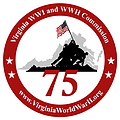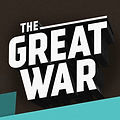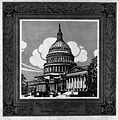Students use primary sources, maps, and supporting documents to examine the treaty and the troubled postwar peace that followed.
Students learn about the League of Nations and the surrounding controversy through editorial cartoons.
An investigation into why Congress rejected the League of Nations. Students compare speeches by Woodrow Wilson and Henry Cabot Lodge.
Lessons focused on the debate surrounding the United States' entry into the League of Nations, and the lasting impact of the League's eventual failure.
Aligned to Virginia's Standards of Learning for History and Social Science
Lesson Plans
Resources
SOL VUS.9b: The student will apply social science skills to understand the emerging role of the United States in world affairs during the end of the nineteenth and twentieth centuries by (b) evaluating the United States' involvement in World War I, including Wilson's Fourteen Points.
SOL VUS.9c: The student will apply social science skills to understand the emerging role of the United States in world affairs during the end of the nineteenth and twentieth centuries by (c) evaluating and explaining the Treaty of Versailles, with emphasis on the national debate in response to the League of Nations.
9th
Grade
A look into the events and overall climate in the United States prior to entering the war.
American Leaders Speak: Recordings from World War I and the 1920 Election
Digital collection of excerpts from political speeches.
Newsreels covering the Versailles peace conference and its repercussions.
League of Nations Photo Archive
A look into the events and overall climate in the United States prior to entering the war.
A lesson analyzing the factors that led to America's entry into WWI. Students to compare a textbook entry with a speech from Woodrow Wilson and an excerpt from Howard Zinn's A People’s History of the United States.
Students examine historic documents to determine why the U.S. moved from neutrality to involvement between 1914 and 1917.
Students examine the Zimmerman Telegram to determine whether the United States should enter the war based on its information and implications.
A four-lesson unit covering the successes and failures of Wilson’s policies and their lasting importance in international relations.
Lesson examining President Woodrow Wilson’s Fourteen Points, the motives behind them, and why most points were rejected at Versailles.
NBC-TV/Encyclopedia Britannica Films
Documentary from the 1950s, narrated by Herbert Hoover, on the life of Woodrow Wilson.






